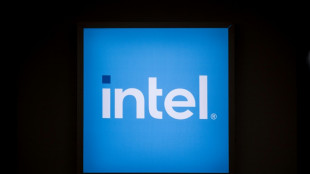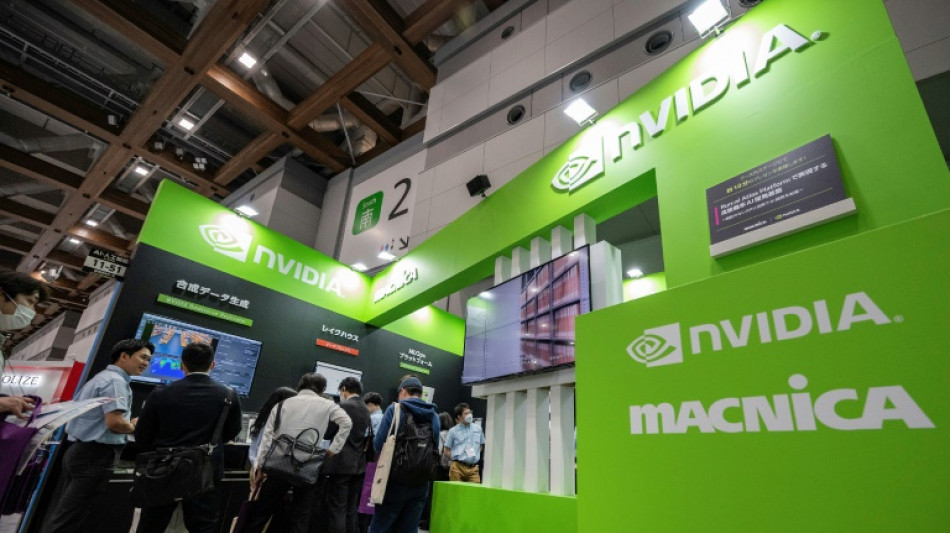
-
 Inter downed by Roma, AC Milan bounce back with victory in Venice
Inter downed by Roma, AC Milan bounce back with victory in Venice
-
Religious hate has no place in France, says Macron after Muslim killed in mosque
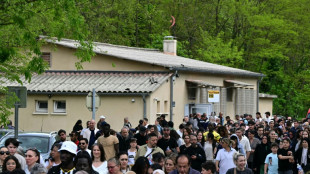
-
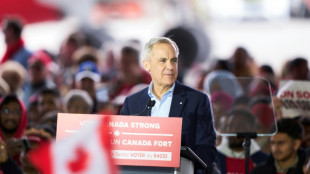 Last day of Canada election campaign jolted by Vancouver attack
Last day of Canada election campaign jolted by Vancouver attack
-
Barcelona crush Chelsea to reach women's Champions League final

-
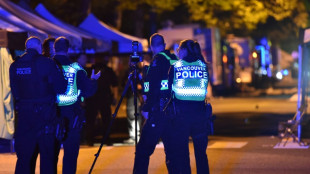 Nine killed as driver plows into Filipino festival in Canada
Nine killed as driver plows into Filipino festival in Canada
-
Germany marks liberation of Bergen-Belsen Nazi camp

-
 Hojlund strikes at the death to rescue Man Utd in Bournemouth draw
Hojlund strikes at the death to rescue Man Utd in Bournemouth draw
-
Zelensky says Ukraine not kicked out of Russia's Kursk
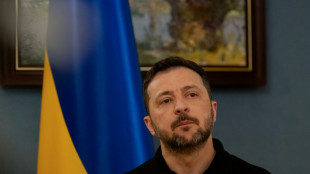
-
 Zverev, Sabalenka battle through in Madrid Open, Rublev defence over
Zverev, Sabalenka battle through in Madrid Open, Rublev defence over
-
Ruthless Pogacar wins Liege-Bastogne-Liege for third time

-
 Bumrah claims 4-22 as Mumbai register five straight IPL wins
Bumrah claims 4-22 as Mumbai register five straight IPL wins
-
No place for racism, hate in France, says Macron after Muslim killed in mosque
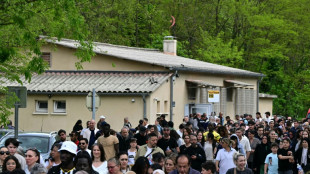
-
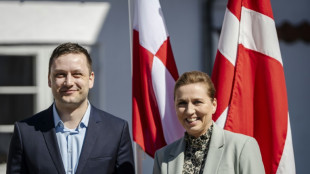 Greenland leader says Trump's threats disrespectful
Greenland leader says Trump's threats disrespectful
-
Spain's Alex Marquez celebrates maiden MotoGP in home Grand Prix

-
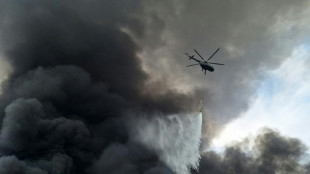 Iran's president visits site of port blast that killed 28
Iran's president visits site of port blast that killed 28
-
French rapper Jul breaks attendance record at national stadium

-
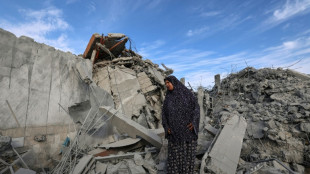 Gaza ministry says hundreds of war missing confirmed dead, toll at 52,243
Gaza ministry says hundreds of war missing confirmed dead, toll at 52,243
-
Crowds flock to Pope Francis tomb, as eyes turn to conclave

-
 'Godfather' director Coppola bags lifetime achievement award
'Godfather' director Coppola bags lifetime achievement award
-
Assefa sets world record, Sawe destroys high class field in London marathon

-
 'No excuse': Real Madrid's Rudiger after throwing object at ref
'No excuse': Real Madrid's Rudiger after throwing object at ref
-
Fire blazes day after Iran port blast killed 28, injured 1,000
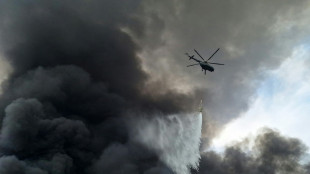
-
 Real Madrid meltdown after third Clasico defeat inevitable end to ugly weekend
Real Madrid meltdown after third Clasico defeat inevitable end to ugly weekend
-
Nine killed as driver plows into Vancouver festival crowd

-
 Crumbs! Should French bakeries open on May 1?
Crumbs! Should French bakeries open on May 1?
-
All eyes turn to conclave as Pope Francis tomb opens to public

-
 Emotional Penge bounces back from betting ban for first DP Tour win
Emotional Penge bounces back from betting ban for first DP Tour win
-
25 killed, 1,000 injured in huge Iran port blast

-
 Greenland PM visits Denmark as Trump threats loom
Greenland PM visits Denmark as Trump threats loom
-
Philippines, US test air defences as China seizes reef
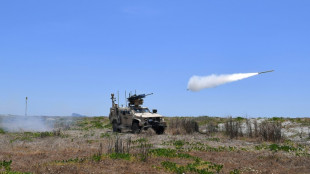
-
 25 killed, fires still burning in huge Iran port blast
25 killed, fires still burning in huge Iran port blast
-
India and Pakistan troops exchange fire in Kashmir

-
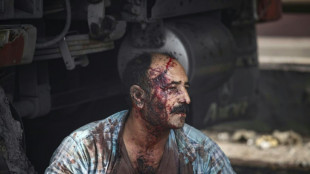 Eighteen killed, fires still burning in huge Iran port blast
Eighteen killed, fires still burning in huge Iran port blast
-
No handshake at muted India-Pakistan border ceremony

-
 Maligned by Trump, White House reporters hold subdued annual gala
Maligned by Trump, White House reporters hold subdued annual gala
-
Austria trials DNA testing to uncover honey fraud

-
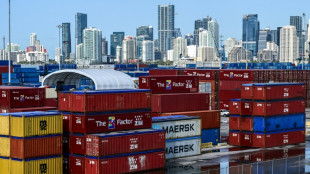 Trump trade war pushes firms to consider stockpiling
Trump trade war pushes firms to consider stockpiling
-
D'Backs' Suarez becomes 19th MLB player to hit four homers in one game

-
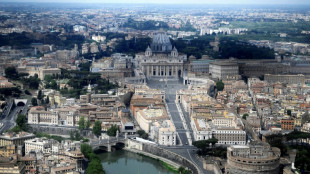 Continuity or rupture: what direction for the next pope?
Continuity or rupture: what direction for the next pope?
-
Surridge scores four as Nashville smash seven past Chicago

-
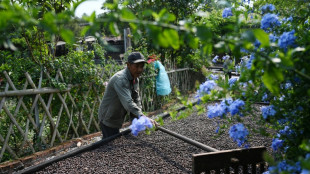 Chinese tea hub branches into coffee as tastes change
Chinese tea hub branches into coffee as tastes change
-
Diplomacy likely to trump geography in choice of new pope

-
 All eyes turn to conclave after Pope Francis's funeral
All eyes turn to conclave after Pope Francis's funeral
-
Doves, deaths and rations: Papal elections over time

-
 Progressive Canadians say social issues blown off election agenda
Progressive Canadians say social issues blown off election agenda
-
Liverpool primed for Premier League title party

-
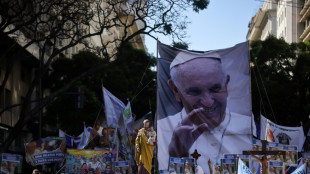 Buenos Aires bids farewell to Francis with tears, calls to action
Buenos Aires bids farewell to Francis with tears, calls to action
-
Thunder sweep past Grizzlies in NBA playoffs, Cavs on brink

-
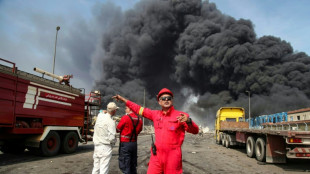 Major blast at Iran port kills 14, injures 750
Major blast at Iran port kills 14, injures 750
-
'What we live for': Kounde after winning Barca Copa del Rey final


Japan ramps up tech ambitions with $65 bn for AI, chips
Japan is readying a $65-billion push in microchips and artificial intelligence aimed at reclaiming its status as a global tech leader and meeting the urgent challenges of its ageing, shrinking population.
The 10-trillion-yen package, which lawmakers could approve this week, is also seen as preparation for an uncertain world as fears grow of a potential Chinese invasion of chip powerhouse Taiwan.
But analysts warn that question marks remain over worker shortages and whether Japan can generate enough electricity for energy-hungry AI data centres.
After dominating in tech hardware during the 1980s, "Japan had a quite a long period of almost just sitting back and observing a lot of this innovation, particularly when it comes to artificial intelligence", said Kelly Forbes, president of the AI Asia Pacific Institute.
"What we have seen in the last maybe two to three years is Japan really waking up to the potential" of such developments, she told AFP.
Japanese tech investor SoftBank and US computing giant Nvidia last week unveiled ambitious proposals to build an "AI grid" across the nation.
That followed a flurry of US investments earlier this year, including from Microsoft, a partner of ChatGPT-maker OpenAI.
AI-powered automation can help Japan, which has the world's second oldest population after Monaco, said Seth Hays, author of the Asia AI Policy Monitor newsletter.
"Demographically speaking, Japan's just going to be crunched on that," he said.
So "they need to utilise AI in order to get those productivity gains that keep the country going".
- Energy problem -
The new government money will bolster Japan's home-grown Rapidus project to produce next-generation semiconductors.
Tokyo has already promised up to four trillion yen in subsidies to help triple sales of domestically produced microchips by 2030.
"Semiconductors are really at the core of AI innovation," said Forbes.
Most of the world's chips are made in Taiwan -- but fears are growing of a blockade or invasion by Beijing, which claims the self-ruled island as part of its territory.
Facing pressure from customers and governments to diversify its production, Taiwanese chip giant TSMC in February opened a $8.6-billion chip factory in southern Japan, and is planning a second facility in the country for more advanced chips.
US President Joe Biden's administration is also pouring money into building chip factories on American soil, including $6.1 billion to Micron and $6.6 billion for TSMC.
Japan's investments are an attempt "to remain competitive in that space, but also... to stay prepared around this geopolitical tension that we know is growing", Forbes said.
But the country needs to find a way to power these energy-intensive projects, from chip manufacturing to running data centres to train AI models.
Japan is heavily dependent on fossil fuel imports, with the government working to bring back online nuclear plants that were halted after the 2011 Fukushima disaster.
"In Taiwan, TSMC takes up eight percent of our electricity," said Hays, who is based in Taipei. "Where's Japan going to get the energy?"
- 'Soft' regulation -
Among Nvidia's collaborations with SoftBank is a new supercomputer using the US company's cutting-edge Blackwell AI chips.
At a speech in Tokyo, Nvidia boss Jensen Huang vowed to "transform the telecommunications network into an AI network" in Japan.
"This is completely revolutionary," he said, giving the example of a radio tower that acts as an "air traffic control, essentially, for self-driving cars".
Despite the hype, Japan has some way to go -- in this year's global classification of digital competitiveness by Swiss management school IMD, it was ranked just 31st.
To boost the sector, "Japan's copyright law is actually one of the most AI-friendly copyright laws in the world", Hays said.
"It essentially allows AI companies to train on copyrighted data, even for profit," he said, adding that while Singapore has similar rules, the approach is unusual.
At the same time, Japan has been "taking a lead" on international discussions on AI, including with an initiative launched at last year's G7 summit in Hiroshima.
Prime Minister Shigeru Ishiba has also pledged to "formulate a new support framework to attract more than 50 trillion yen in public and private investment over the next 10 years" for AI and chips.
Japan can benefit from AI advances in healthcare, Forbes said, calling the latest investments an attempt to "put Japan at the forefront of this technological revolution".
Y.Nakamura--AMWN

